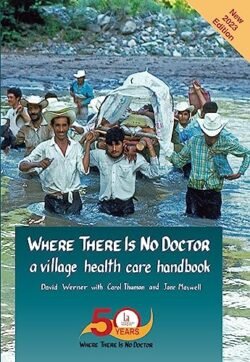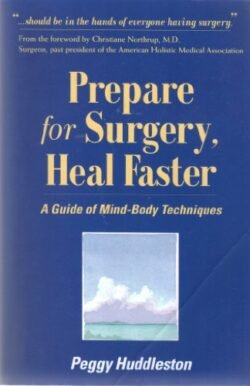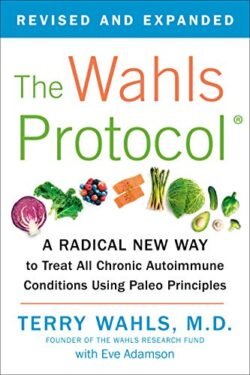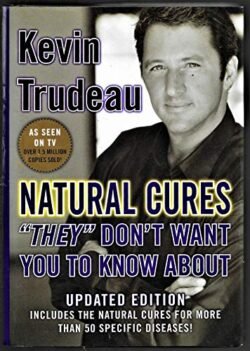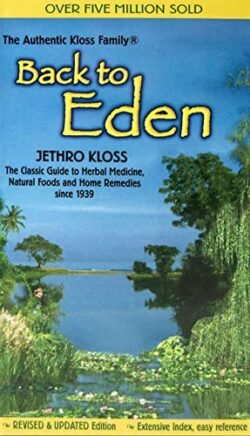“On Death and Dying” by Elisabeth Kübler-Ross, first published in 1969, is a seminal work that transformed the way society understands and deals with the process of death. Kübler-Ross, a Swiss-American psychiatrist, introduces the now-famous five stages of grief model based on her extensive work with terminally ill patients. The stages—denial, anger, bargaining, depression, and acceptance—offer a framework for understanding the emotional journey that patients and their loved ones often undergo when faced with death. The book is based on Kübler-Ross’s interdisciplinary seminars on death, where she interviewed dying patients, aiming to bring more humanity to the medical approach to death and encouraging more open discussions about this often-taboo subject. “On Death and Dying” also explores the needs of dying patients and emphasizes the importance of compassionate care. Character Analysis Rather than following a narrative structure, “On Death and Dying” presents a series of interviews and observations that highlight the emotional experiences of individuals confronting their mortality. Kübler-Ross uses these insights to advocate for changes in the care of the dying, promoting a more empathetic and understanding approach to end-of-life care. Themes and Analysis The Five Stages of Grief: Kübler-Ross’s exploration of the stages of grief provides a valuable framework for understanding the complex emotions involved in the process of dying and grieving. Communication and Compassion: The book emphasizes the importance of open communication with the dying and advocates for a compassionate approach that addresses the emotional and psychological needs of patients. Death as a Part of Life: Kübler-Ross challenges societal attitudes towards death, urging readers to view it as a natural part of life rather than a taboo or solely medical event. “On Death and Dying” remains a groundbreaking work that has had a profound impact on the fields of psychology, healthcare, and palliative care. Elisabeth Kübler-Ross’s pioneering research and compassionate perspective have opened the door to more open, honest conversations about death and dying, helping countless individuals navigate one of life’s most challenging experiences. The book is a must-read for healthcare professionals, caregivers, and anyone seeking to understand the emotional dynamics of death and the grieving process. If the summary caught your interest, Consider reading the full book on AbeBooks. Explore this book on AbeBooks
Where There Is No Doctor
“Where There Is No Doctor: A Village Health Care Handbook” by David Werner, first published in 1977, is widely recognized as one of the most important health care manuals for communities in remote and underserved areas around the world. This comprehensive guide provides practical, easily understood information on how to diagnose, treat, and prevent common diseases and injuries when access to professional medical care is limited or unavailable. It also emphasizes the importance of community health, nutrition, sanitation, and preventive measures to improve overall well-being. The handbook covers a broad range of topics, from maternal and child health to the treatment of infectious diseases, dental care, and the management of chronic conditions, making it an invaluable resource for community health workers, educators, and laypeople alike. Its simple language and clear illustrations make complex medical concepts accessible to those with little or no formal medical training. Character Analysis “Where There Is No Doctor” is structured to be user-friendly, with chapters organized by symptoms and conditions for easy reference. The book encourages community involvement in health care and the empowerment of individuals to take active roles in their own health management. It also provides guidance on how to use and store common medications, create basic medical supplies, and collaborate effectively with local health professionals when available. Themes and Analysis Empowerment through Knowledge: A key theme of the handbook is empowering individuals and communities with the knowledge to address their own health care needs, fostering self-reliance and resilience. Prevention and Public Health: The book emphasizes preventive care and public health measures as foundational to community well-being, advocating for clean water, proper sanitation, and vaccination. Cultural Sensitivity and Community Participation: Recognizing the diversity of cultures and health practices among its readers, the handbook stresses the importance of cultural sensitivity and the inclusion of community members in health decision-making processes. “Where There Is No Doctor: A Village Health Care Handbook” has become an essential tool in global health, widely used in developing countries and in contexts where health care resources are scarce. Its practical approach to medical care, combined with a deep understanding of the social and environmental determinants of health, has made it a cornerstone resource for those working to improve health outcomes in underserved communities. The handbook’s ongoing updates and translations into multiple languages reflect its enduring relevance and commitment to accessible health care education for all. If the summary caught your interest, Consider reading the full book on AbeBooks. Explore this book on AbeBooks
Prepare for Surgery, Heal Faster
“Prepare for Surgery, Heal Faster: A Guide of Mind-Body Techniques” by Peggy Huddleston, first published in the late 1990s, is a groundbreaking book that offers a holistic approach to surgery preparation and recovery. Huddleston’s work is based on the premise that patients who are mentally and emotionally prepared for surgery experience less anxiety, require fewer pain medications, and recover more quickly compared to those who are not. The book outlines a series of relaxation and visualization techniques designed to reduce preoperative anxiety, enhance the body’s healing processes, and promote a more rapid and less painful recovery. Huddleston’s program involves five steps that include learning to relax, visualizing the surgical procedure as a success, organizing a support group, using healing statements during and after surgery, and meeting with the surgical team to discuss the plan for emotional support. The guide also offers advice on creating a peaceful post-surgery environment conducive to healing. Character Analysis As a non-fiction guide focused on health and wellness, “Prepare for Surgery, Heal Faster” does not feature characters or a narrative structure. Instead, Peggy Huddleston positions herself as both author and instructor, sharing her insights and methodologies to empower readers facing surgery. Her approachable and empathetic tone makes the subject matter accessible, encouraging readers to actively participate in their healing process. Themes and Analysis Mind-Body Connection: A central theme is the powerful connection between the mind and the body, emphasizing how psychological and emotional states can significantly impact physical health and recovery. Empowerment through Preparation: The book advocates for patient empowerment, suggesting that active preparation for surgery can lead to better outcomes and a sense of control over one’s health journey. Holistic Healing: Huddleston promotes a holistic approach to surgery and healing, incorporating not only physical but also emotional and spiritual well-being into the recovery process. “Prepare for Surgery, Heal Faster: A Guide of Mind-Body Techniques” is an invaluable resource for individuals undergoing surgery and healthcare professionals alike. By combining practical advice with evidence-based mind-body techniques, Peggy Huddleston offers a comprehensive guide that has helped thousands of patients navigate their surgical experiences with less fear and more confidence. Her pioneering work continues to contribute to the growing recognition of holistic practices in medicine, emphasizing the importance of treating the whole person for optimal health and healing. If the summary caught your interest, Consider reading the full book on AbeBooks. Explore this book on AbeBooks
The Wahls Protocol
“The Wahls Protocol: A Radical New Way to Treat All Chronic Autoimmune Conditions Using Paleo Principles” by Dr. Terry Wahls, M.D., with Eve Adamson, published in 2014, is a groundbreaking book that presents a transformative approach to managing autoimmune diseases through diet and lifestyle changes. Dr. Wahls shares her personal journey from being wheelchair-bound with secondary progressive multiple sclerosis to significantly improving her health and vitality by adopting a nutrient-rich diet based on Paleo principles. The protocol outlines a structured diet and lifestyle program designed to reduce inflammation, support the body’s mitochondria, and improve overall health by consuming specific nutrients dense in vitamins, minerals, antioxidants, and essential fatty acids. Character Analysis As a non-fiction guide and personal narrative, “The Wahls Protocol” centers around Dr. Terry Wahls’ experiences and research rather than fictional characters. Dr. Wahls serves both as the author and the main subject, detailing her transformation and the scientific basis behind her protocol. Her story is compelling and serves as inspiration for individuals struggling with autoimmune conditions to consider dietary and lifestyle interventions as part of their treatment strategy. Themes and Analysis Nutrition and Autoimmune Disease: The core theme of the book is the powerful role nutrition plays in managing and potentially reversing symptoms of autoimmune diseases. Dr. Wahls emphasizes a holistic approach to health that focuses on nourishing the body with foods that support immune function and cellular health. Personal Empowerment: Another significant theme is the idea of taking control of one’s health through informed choices about diet and lifestyle. The Wahls Protocol encourages individuals to become active participants in their healing process. Scientific and Personal Evidence: The book combines scientific research with Dr. Wahls’ personal experiences to provide a compelling argument for the protocol’s effectiveness. It includes detailed explanations of how certain foods and nutrients impact the body, particularly the immune system and cellular function. “The Wahls Protocol: A Radical New Way to Treat All Chronic Autoimmune Conditions Using Paleo Principles” offers hope and practical guidance for individuals suffering from autoimmune diseases. Dr. Terry Wahls’ remarkable recovery and the success stories of others who have followed her protocol highlight the potential of dietary and lifestyle changes to improve quality of life. This book is not only a testament to the power of self-healing but also a valuable resource for anyone looking to address autoimmune conditions through natural means. By bridging the gap between traditional medical treatments and holistic health practices, “The Wahls Protocol” stands out as a pivotal work in the field of health and nutrition. If the summary caught your interest, Consider reading the full book on AbeBooks. Explore this book on AbeBooks
Natural Cures “They” Don’t Want You To Know About
“Natural Cures ‘They’ Don’t Want You To Know About” by Kevin Trudeau is a controversial book that claims to reveal secrets of the healthcare industry and natural remedies that are allegedly suppressed by pharmaceutical companies and the government. Trudeau argues that many common ailments and diseases can be treated or prevented with natural therapies and criticizes the mainstream medical community for relying too heavily on prescription medications. The book covers a wide range of topics, including dietary supplements, herbal remedies, and the benefits of organic foods, aiming to empower readers to take control of their health through natural means. Character Analysis As a non-fiction work, this book does not feature characters in the traditional sense. Kevin Trudeau positions himself as a whistleblower, sharing what he describes as hidden truths about the healthcare industry and natural remedies. His narrative voice is that of an advocate for alternative medicine, challenging the status quo and encouraging readers to question conventional medical practices. Themes and Analysis Skepticism of Conventional Medicine: Trudeau expresses deep distrust of the pharmaceutical industry and the medical establishment, suggesting that they prioritize profit over patient well-being. Advocacy for Natural Remedies: The book champions the use of natural remedies and lifestyle changes as safer and more effective alternatives to pharmaceuticals for treating and preventing disease. Critique of Government Regulation: Trudeau criticizes government agencies for being complicit with the pharmaceutical industry in suppressing information about natural cures. “Natural Cures ‘They’ Don’t Want You To Know About” has sparked significant debate and controversy, with critics questioning the validity of Trudeau’s claims and pointing out his lack of medical qualifications. Despite this, the book has found a substantial audience among those skeptical of mainstream medicine and interested in alternative health practices. It serves as a provocative commentary on the healthcare industry and the ongoing debate between conventional and alternative medicine. Readers interested in exploring alternative approaches to health and wellness may find the book thought-provoking, but it is important to approach its claims with a critical eye and consult healthcare professionals when considering changes to one’s health regimen. If the summary caught your interest, Consider reading the full book on AbeBooks. Explore this book on AbeBooks
Back To Eden
“Back To Eden” by Jethro Kloss is a pioneering work in the field of herbal medicine and natural health. First published in 1939, this comprehensive guide has become a cornerstone of the natural health movement, offering wisdom on herbal remedies, natural diet, and holistic approaches to wellness. Kloss’s work is grounded in the belief that nature provides everything necessary for achieving and maintaining health. “Back To Eden” explores the use of herbs for healing, the benefits of a plant-based diet, and the importance of living in harmony with the natural world. Character Analysis As “Back To Eden” is a guide rather than a narrative work, it doesn’t feature characters in the conventional sense. However, Jethro Kloss himself emerges as a pioneering figure through his teachings and philosophy. His approach to health and wellness reflects a deep respect for nature and a belief in the body’s inherent ability to heal itself when supported by the right conditions and remedies. Jethro Kloss: Kloss acts as both the author and the guiding voice throughout the book, sharing his extensive knowledge and experience with natural remedies and holistic health. His dedication to educating others about the benefits of a natural lifestyle and his innovative use of herbal medicine have made him a revered figure in the natural health community. Kloss’s work is characterized by a practical, hands-on approach to wellness, emphasizing prevention and the use of natural resources for healing. Themes and Analysis Natural Healing: The book champions the use of natural methods and remedies for healing, highlighting the effectiveness of herbs, diet, and lifestyle changes in promoting health. Holistic Wellness: Kloss emphasizes a holistic view of health, considering the physical, emotional, and spiritual aspects of well-being and advocating for a lifestyle that supports all dimensions of health. Self-Reliance in Health: “Back To Eden” encourages individuals to take responsibility for their own health through education, self-care, and the use of natural remedies, promoting a sense of empowerment and self-reliance. “Back To Eden” remains a seminal text in the realm of natural health and herbal medicine. Jethro Kloss’s visionary work has inspired generations to embrace a more natural, holistic approach to wellness, proving that traditional knowledge and natural remedies have a valuable place in modern health care. The book’s enduring popularity attests to its timeless relevance and the continuing appeal of its message about the healing power of nature. For anyone interested in herbal medicine, natural diet, or holistic health, “Back To Eden” offers a treasure trove of wisdom and practical advice for nurturing health in harmony with the natural world. If the summary caught your interest, Consider reading the full book on AbeBooks. Explore this book on AbeBooks


